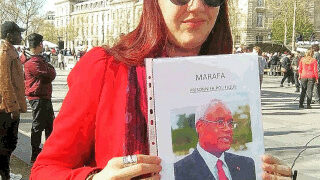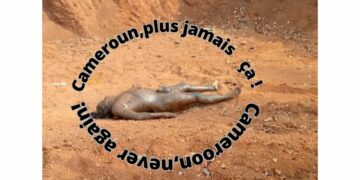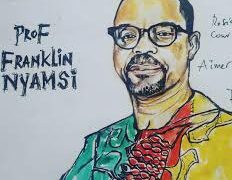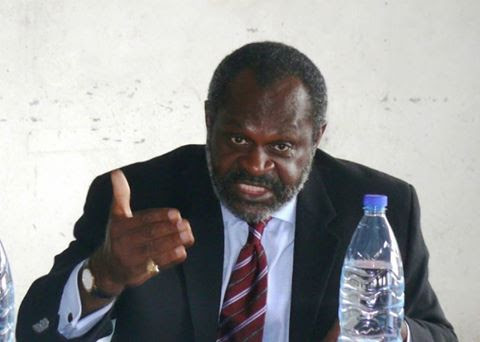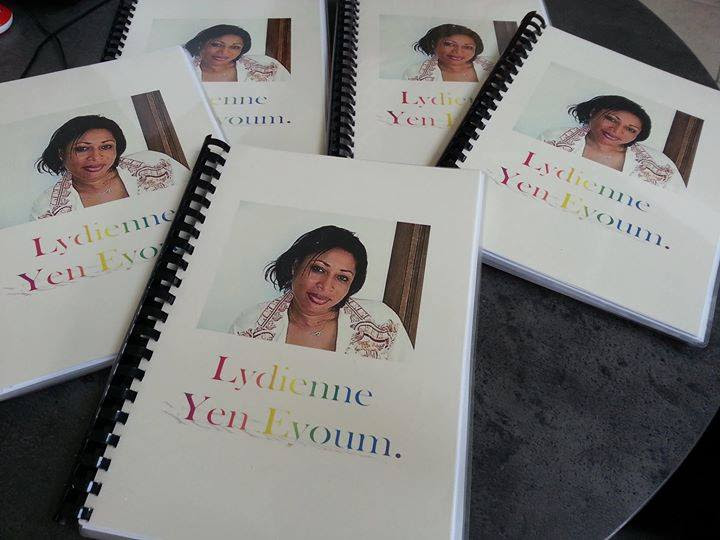Mr. Tchiroma’s July 15, 2016, press declaration on the recent Decision of the United Nations Working Group on Arbitrary Detention (WGAD), calling for the immediate release of Mr. Marafa Hamidou Yaya from his arbitrary detention and compensation for his suffering, is political ‘spin doctoring’ at its worst and a poorly-disguised attempt to confuse and distract the Cameroonian public from the real issues at stake.
His declaration exudes the unmistakable aroma of a rearguard campaign to dilute the legal significance of this Decision from the point of view of the Law of Nations. The press statement repeats gosso modo the same worn-out arguments the Government of Cameroon (GOC) presented to the Working Group in their spirited response to Mr. Marafa’s submission; the same arguments its lawyers raised in the Mfoundi High Court as well as the Supreme Court. There is nothing de nouveau here! Will someone please tell Mr. Tchiroma that the Marafa case is now res judicata and he should stop re-litigating it in the press?
It should be recalled that when seised of the matter it took the WGAD almost six months of careful and methodical examination of the GOC’s arguments as well as those of Mr. Marafa’s counsel. It is only after wading through over a thousand pages of documentation that these five eminent and reputable U.N.-appointed jurists, as impartial and independent as they come, concluded that Mr. Marafa had been denied his right to a fair, public trial by competent, impartial and independent judges, in clear violation of GOC’s solemnly and voluntarily-assumed obligations under Article 10 of the Universal Declaration of Human Rights (UDHR) and Article 14 of the International Covenant on Civil and Political Rights (ICCPR). Both of these provisions speak to Mr. Marafa’s right to a fair and public trial by competent, independent and impartial judges.
Since Mr. Tchiroma’s press outing seeks to raise a cloud over the binding effect of the Working Group’s Decision, perhaps a brief primer on international law is called for, if for no other reason than to situate, for the benefit of the Cameroonian people, Cameroon’s place in this orbit and her obligations arising thereof. International law is nothing more than the law which States themselves, Cameroon included, have agreed to be bound by either expressly (in treaties) or impliedly (by their conduct). It is this “Law” that the WGAD was set up by the United Nations Human Rights Council—incidentally, the first organ established in 1946 by a newly-established United Nations with a mandate to oversee the protection of human rights across the globe—to monitor compliance by States parties. When Cameroon joined the United Nations in 1960, she expressly agreed to be bound by the Charter of the United Nations, the constitution of the world. Pursuant to the provisions of that Charter, Cameroon together with the other Member States pledged themselves to jointly and severally take action to promote the “universal respect for, and observance of, human rights and fundamental freedoms for all without distinction as to race, sex, language, or religion.” See United Nations Charter, Articles 55 (c) and 56.
It should be noted that upon becoming a U.N. Member in 1960, Cameroon automatically agreed to comply with the provisions of the UDHR, the fountain of all subsequent human rights instruments; and Cameroon, on its own volition, free from any external pressure, exercised her rights as an independent sovereign State when it ratified the ICCPR in 1984 together with its Optional Protocol. These instruments which were subsequently incorporated by reference into our Constitution thereby becoming the supreme law of the land are front-and-center in the deliberations of the WGAD that resulted in the Decision they took on Mr. Marafa!
When sovereign States enter into treaty relationships, their conduct is regulated by the doctrine of pacta sunt servanda, this doctrine is at the core of treaty law and is codified in Article 26 of the Vienna Convention on Treaties (“Every treaty in force is binding upon the parties to it and must be performed by them in good faith”). In simple language, commitments publicly, formally and voluntarily made by a nation should be honored in good faith. The doctrine of pacta sunt servanda enjoins States parties to a treaty from invoking their internal law as justification for failure to perform. Having been found in violation of her obligations under the UDHR and the ICCPR, I hope Mr. Tchiroma’s press declaration is not intended as an alibi for GOC to brush aside the Decision of the Working Group. Under the doctrine of pacta sunt servanda Cameroon is required to give full faith and credit to that Decision because it emanates from engagements Cameroon took in good faith before the community of Nations which, regrettably she failed to honor and respect in Mr. Marafa’s case!
When an international judicial or quasi-judicial body renders an opinion against a State for failing to comply with its treaty obligations, the defaulting State has no choice but to respect and comply with that ruling. It is this mutual respect for treaty obligations that imposes structure and order in the relationships between States and promotes stability in the international system. Without this reciprocal expectation that States will respect their treaty obligations, the community of nations would become nothing more than a Hobbesian jungle governed by a Darwinian paradigm where only the strongest and fittest States survive, i.e., powerful nations who can prey on the small and weaker States; using their enormous power to bend the less-powerful to their will.
On a moral level, it is too late for Mr. Tchiroma to raise a cloud over the legal significance of the WGAD’s Decision. That should have been done long before the GOC agreed to participate in the proceedings. The contest was joined from the moment GOC submitted to the jurisdiction of the UN Working Group by filing its pleadings in response to Mr. Marafa’s petition; then consented to the rules of engagement, so to speak, because she had expressly agreed to be bound by the U.N. Charter, the UDHR and the ICCPR. It bears emphasizing that GOC could have done as it did in both the Thierry Atangana and Lydienne Eyoum petitions that preceded Mr. Marafa’s at the WGAD where GOC ignored repeated requests from the WGAD to file an answer. Clearly GOC attached great importance to the Marafa case as evidenced by its willingness to engage in every stage of the proceedings; for that we are immensely grateful. However, Government cannot now ignore this ruling because it went against her. What if Nigeria had refused to respect the International Court of Justice’s judgment on the Bakassi Pennisula?
Cameroon considers herself and wants to be treated with respect as a law-abiding member of the community of nations. Respect is usually earned: here then is an opportunity for GOC to demonstrate its unflinching commitment to the Rule of Law and its deep and abiding attachment to the doctrine of pacta sunt servanda by releasing Mr. Marafa Hamidou Yaya without further delay.
Ndiva Kofele Kale Esq, Counsel for Marafa Hamidou Yaya. Motande Chambers, Buea









